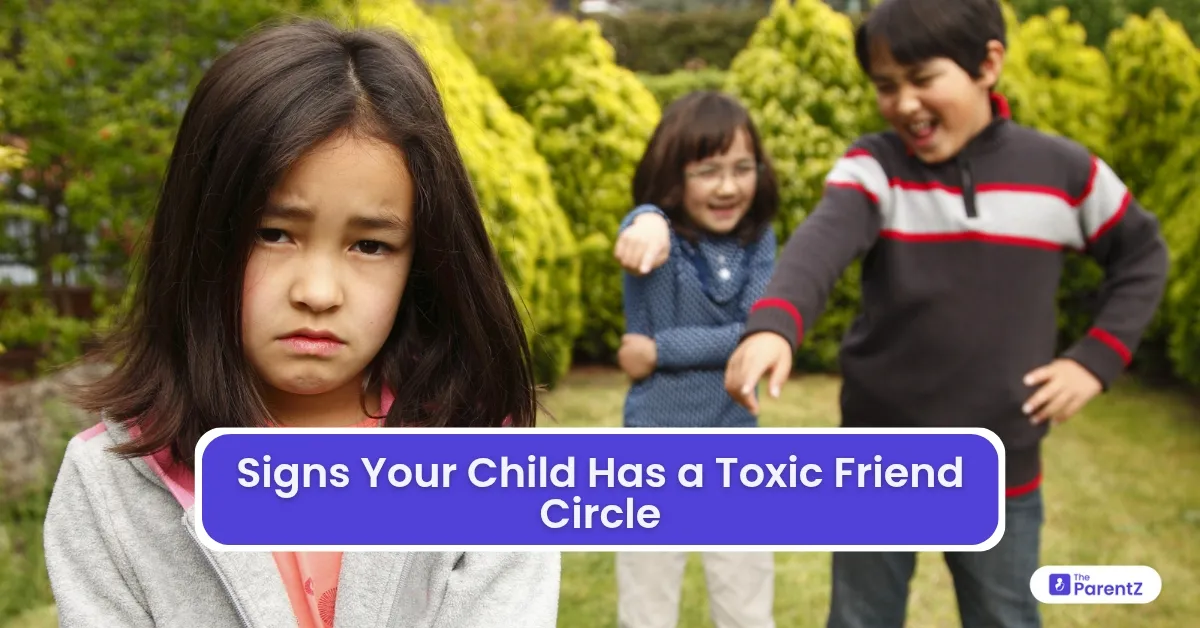We've all been there as parents—watching our child rush to answer a text, only to see their face fall moments later. Or noticing how they seem different after hanging out with certain friends—less confident, more anxious, somehow smaller. It's that nagging feeling that something's not quite right with your child's friendships, but you can't quite put your finger on what.
Friendship is one of life's greatest joys, but it can also be incredibly complicated, especially for kids who are still figuring out who they are and how relationships work. As parents, we want to protect our children without controlling them, guide them without dictating their choices, and help them develop the skills to recognize healthy versus unhealthy relationships.
In this guide, we'll explore the signs that your child might be in a toxic friend circle, why kids often struggle to see these red flags (even when they seem obvious to us), and how to help them navigate toward healthier connections. We'll also take an honest look at how to ensure our own children aren't the ones creating an unhealthy dynamic for others.
Signs to Watch For
1. Your Child's Personality Seems to Be Changing
Remember that confident, happy kid who loved telling jokes at the dinner table? If they've suddenly become withdrawn, anxious, or they're acting like someone you barely recognize, their friend group might be having a negative influence. Kids often change to fit in with their peers, but dramatic personality shifts are worth paying attention to.
2. They're Constantly Putting Themselves Down
"I'm so stupid." "Nobody really likes me." "I look awful." If your child has started talking about themselves this way, ask yourself where they might be learning this language. Toxic friend groups often use put-downs as "jokes" that aren't really funny at all.
3. They Seem Afraid to Say No
Does your child drop everything when certain friends call? Do they seem anxious about missing a get-together or not responding to texts right away? Healthy friendships allow space for boundaries. If your child seems afraid of disappointing their friends, something might be off.
4. They Hide Things About Their Friendships
When kids start being secretive about who they're hanging out with or what they're doing together, it could be a sign that they know something's not right. Trust your instincts if conversations about certain friends make your child uncomfortable or defensive.
5. You Notice Constant Drama
Every friendship group has occasional conflicts, but if your child is constantly dealing with betrayals, secrets being shared, or friends turning against each other, that's not normal. Toxic friend circles thrive on drama and keeping everyone off-balance.
6. Your Child Comes Home Emotionally Drained
Friendships should generally be energizing, not exhausting. If your child regularly comes home looking defeated after spending time with friends, these relationships might be taking more than they're giving.
Why Kids Often Miss These Signs
Children and teens are still learning about healthy relationships. They may not realize that friendship shouldn't regularly make them feel bad about themselves. For many kids, belonging to a group—any group—feels better than being alone, even if that group treats them poorly.
The desire to fit in is incredibly powerful during the school years. Your child might think that the way their friends treat them is just "how things are" or that they need to earn better treatment by trying harder to please the group.
Why Kids Resist Acknowledging Toxic Friendships
When we point out concerns about their friends, kids often get defensive. Here's why:
- Admitting there's a problem feels like failure. No one wants to think they've chosen bad friends or that they're being mistreated.
- Fear of loneliness. Many kids would rather stay in unhealthy friendships than face the prospect of having no friends at all.
- Status concerns. If their toxic friends are considered "popular," your child might believe that the social benefits outweigh the emotional costs.
- They're hoping things will change. Kids are natural optimists who often believe that if they just hang in there, the relationship will improve.
Helping Your Child Recognize Unhealthy Dynamics
Instead of directly criticizing their friends (which usually backfires), try these approaches:
- Ask questions that help them reflect. "How do you feel after hanging out with Jamie? Do you usually feel good about yourself or worried?"
- Share your own experiences. "When I was your age, I had a friend who often made me feel bad about myself. It took me a while to realize that wasn't how friends should make you feel."
- Watch movies or read books that feature different kinds of friendships, then discuss what healthy relationships look like.
Making Sure Your Child Isn't the Toxic Friend
It's also important to ensure your child isn't exhibiting toxic behaviors themselves. Have regular conversations about:
- How they treat others when no one's watching
- The importance of including people rather than excluding them
- Speaking up when friends are being unkind to others
- Respecting boundaries and differences
Remember that kids learn how to be friends largely by watching the adults in their lives. Model healthy friendships and talk openly about resolving conflicts respectfully.
Conclusion
If you're concerned about your child's friendships, start by building trust through conversation rather than criticism. Listen more than you speak. Help them identify how different friends make them feel, and gradually guide them toward relationships that build them up rather than tear them down.
Remember that learning to choose good friends is a skill that takes time to develop. With your patient guidance, your child can learn to recognize the difference between friendships that help them grow and those that hold them back.





Be the first one to comment on this story.